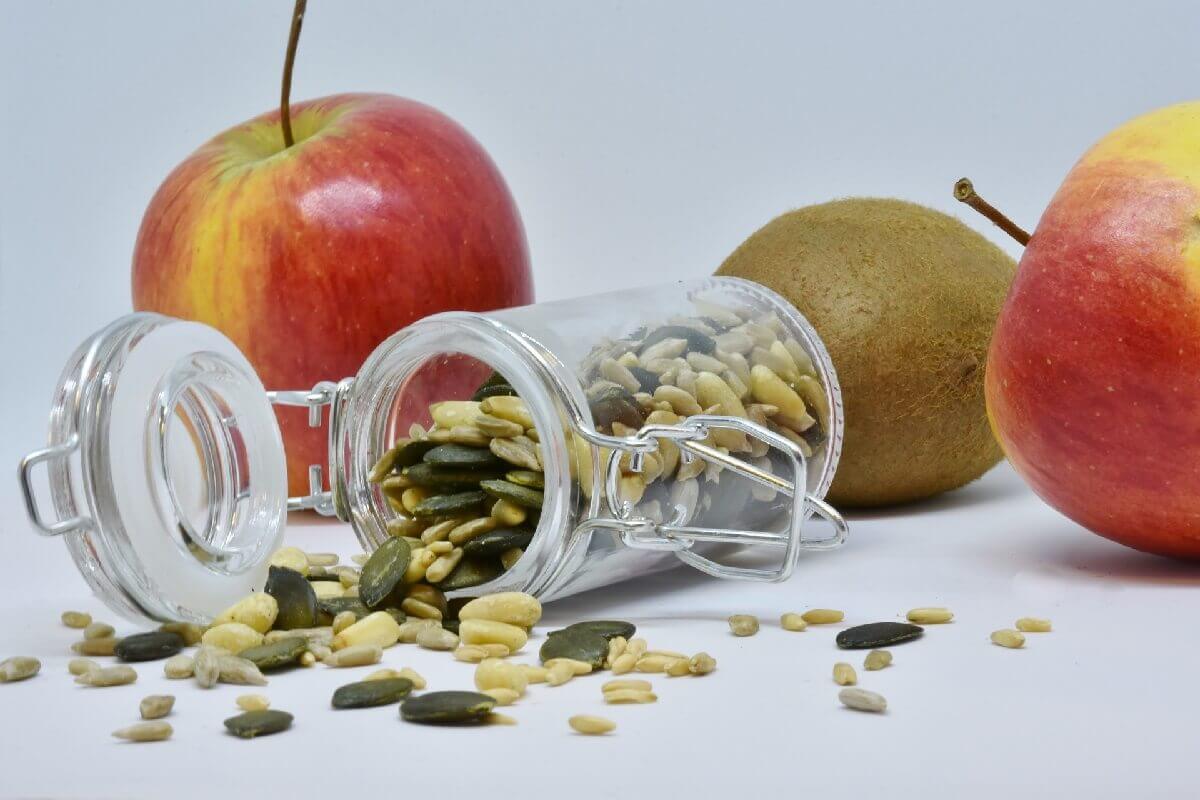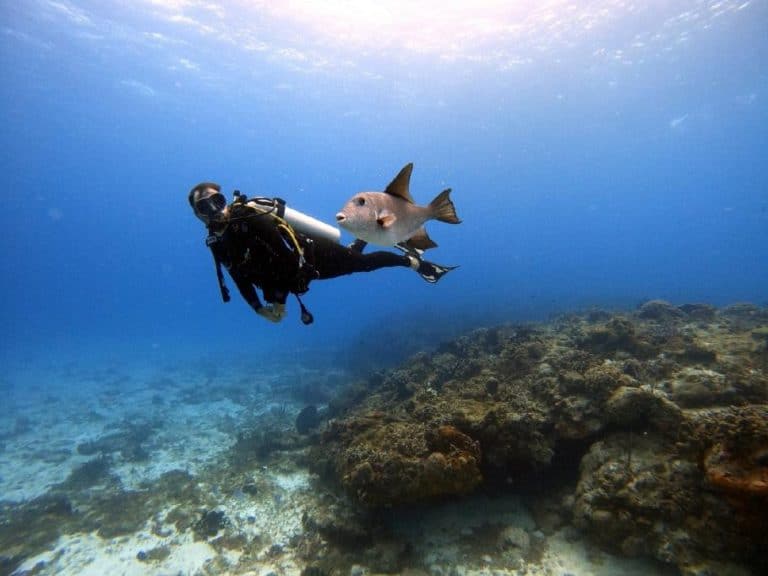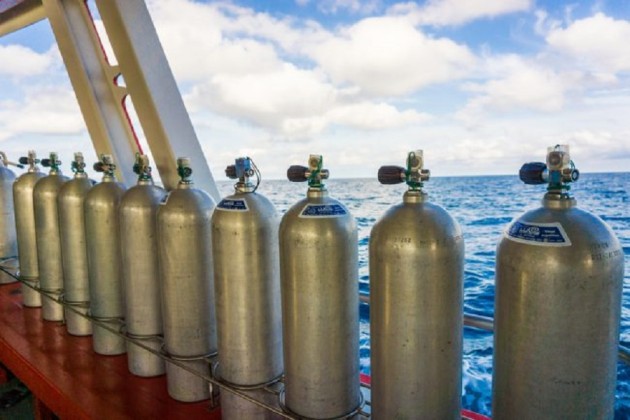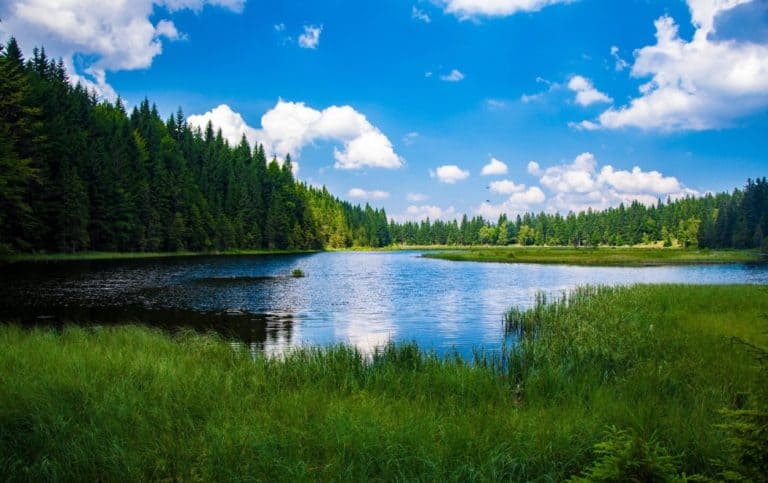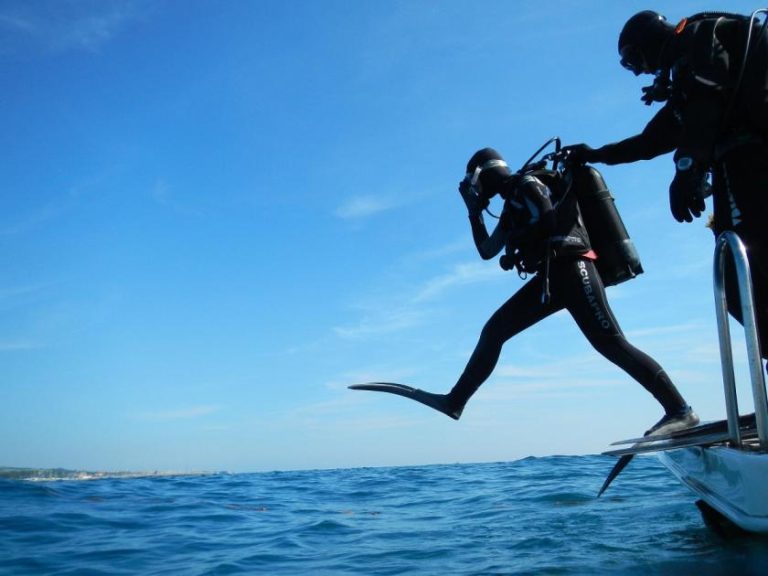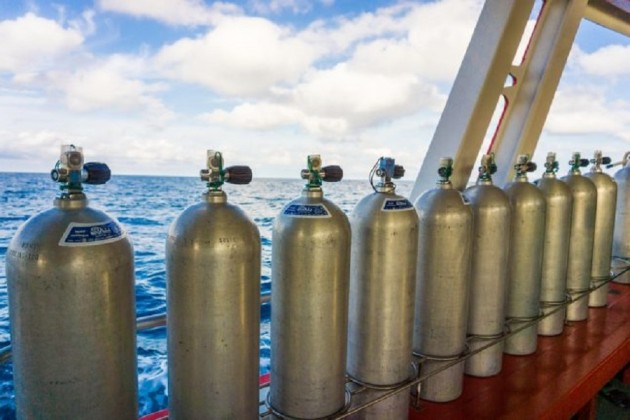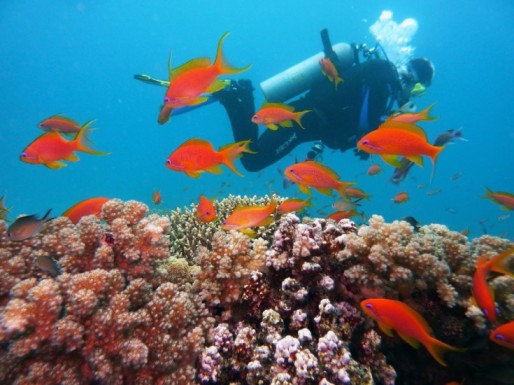What to Eat Before Scuba Diving
Before taking part in any sport, participants always prepare by excising and having a healthy diet plan days or months before D-day. Scuba diving isn’t any different divers to prepare for dives. Recreational divers may not have a lot of time to prepare for a dive but there is a lot you can do in 1 or 2 days before diving. As a first-time diver, you may wonder what you should eat before scuba diving.
A healthy meal eaten 2-3 hours before the dive should include foods rich in carbohydrates, protein, some healthy fats, and fruits. Some of the best meal options before diving include eggs, bananas, salmon, nuts, fresh fruits, brown rice, shrimp, vegetables, dried fruits, oats, beef, and water.
Divers should keep the portions to a reasonable amount and remember to stay hydrated. Sticking to familiar foods lowers the risks of an upset stomach during the dive and other food-related problems.
Eating 2-3 hours before the dive gives the body enough time to digest the food and provide the energy required. When taking several dives in a day, dives can enjoy healthy snacks such as bananas, nuts, or any other healthy snack to boost their energy.
In this article, we’ll look into the different food categories that you should at before diving as well as the foods to avoid. We’ll also dive deeper into other related topics and why it’s important to eat healthy foods before the dive.
Let’s dive into it!
Best Foods To Eat Before Scuba Diving
Carbohydrates
Foods in this group provide us with energy to navigate the water and carry diving gear and equipment that can be quite heavy.
Taking too much or too little carbohydrates can negatively impact our bodies. A lot of carbohydrates right before the dive will slow down your digestion, make you feel tired, and with very little energy to do anything. Too little carbs also slow us down as the body uses up the little energy available.
Healthy sources of carbs include
- vegetables
- legumes
- whole gains
- nuts
- whole fruits
- tubers such as sweet potatoes
- seeds such as pumpkin seeds
Avoid eating unhealthy carbohydrates such as white bead, processed foods, and sugary drinks like sodas. These foods a digested very fast and the energy is used up quickly too. Due to fast digestion, we often experience blood sugar and energy crashes.
Limit the number of carbohydrates taken right before the dive and only eat familiar foods. When preparing the meal with multiple carbohydrates only include a few of them to avoid slowing down the digestion process and bloating.

Proteins
These are body-building foods. They help in the growth and repair of cells and muscles.
Most people will go for dives in the morning or in the afternoon. Some of the best protein sources to have for breakfast or lunch include Salmon, eggs, sausage rolls, meat pie, beans, protein smoothies, and Greek yogurt.
Eating a well-balanced breakfast or lunch 2 to 3 hours before diving will allow the body to digest the meal properly and release the required energy.
Healthy Fats
Fats can be obtained from various sources including nuts, fish, fruits, and eggs. Including healthy portions in your diet can give you more than one befit.
It also minimizes the need for large portions in order to obtain proteins, carbs, or fats.
Water
Hydration is important to scuba divers. The body needs to stay hydrated, especially when in hot weather.
Sweating and exposure to harsh weather conditions will make you lose a lot of water to the environment and could even cause a headache.
While hydration is important, avoid drinking a lot of water right before the dive, this will easily cause you a stitch making it impossible to dive.
Always stay hydrated the day before the dive and remember to carry some water with you for the dive. After the dive, it’s okay to hydrate as you head back to the hotel room.
Water aids in digestion and also helps break down nitrogen absorbed into the body during the dive. This prevents the chances of decompression sickness.
Avoid drinking coffee on the day of the dive since coffee easily dehydrates the body leaving you very thirsty. You are likely to drink a lot of water that could cause a stitch.
Best Snacks Before/After Scuba Diving
Sometimes you may not have enough time to grab a proper meal before diving or there’s not enough time to allow prop digestion of the meal so you end up skipping it.

Some of the best snacks before scuba diving include:
- Nuts
- Bananas
- Granola bar
- Greek yogurt
- Energy bar
- Dried fruits
These snacks can also be enjoyed after the dive.
The good news is that after the dive you can eat anything you like and as much as you like. After scuba diving, most divers report feeling very hungry and tired.
This is expected since the body burned some calories during the dive leaving you hungry and exhausted.
What Not To Eat Before Scuba Diving
Avoid foods or fruits that are very acidic, diuretics, new foods, spicy foods, fatty foods, and junk foods.
Acidic foods such as will affect different people differently it’s important to know what causes a lot of acidity for you.
For instance, some people can take eggs or cottage cheese and have no stomach or acidity problems while others will experience it even after taking a bite of it.
Diuretics include coffee; avoid drinking a lot of coffee before the dive as it tends to dehydrate the body very quickly.
When traveling, save the food sampling after your dive. You never know how your stomach will handle this new meal causing inconveniences during the dive.
Spicy and fatty foods also affect different people in different ways. Fatty foods tend to cause a running stomach for some people while others could experience an upset stomach aft eating spicy and fatty foods.
Junk foods are known to cause fatigue, and lifestyle diseases and also get digested very fast causing energy crushes. Avoid junk foods before diving; maybe treat yourself later to ice cream or a bugger after the dive.

Can You Drink Alcohol the Night before Scuba Diving
Don’t drink right before scuba diving. Alcohol intoxication will interfere with your judgment, functionality, and ability to think straight.
If you must drink, let it be after diving as a way to celebrate with your dive buddies and other friends.
Avoid heavy drinking the night before the dive to avoid bad hangovers and fatigue. It’s advisable to avoid drinking or using any drugs 8-10 hours before the dive.
Drunkenness and hangovers could increase the risk of the bends, drowning among other injuries associated with scuba diving.
In case you had alcohol the night before but still feel a hangover, avoid diving until you are okay and fully hydrated.
Can You Dive On an Empty Stomach
It’s not advisable to go diving on an empty stomach. If you don’t have the energy required, you could easily faint and drown while scuba diving.
In addition, since your body isn’t well-prepared diving could impair the functionality of some organs or metabolic processes increasing the risk of decompression sickness.
As mentioned earlier, if the dive happens spontaneously or within short notice take a snack 20-30 minutes before diving. This will provide you with some energy for the dive. Bananas a known to give instant energy, 2 bananas can provide you with energy for a 1-hour workout session. ‘
Avoid scuba diving on an empty stomach, it’s not safe and only increases the chances of injuries and sickness.
Why I’m I So Hungry after Scuba Diving
In this article, I discussed how many calories are burned when scuba diving. About 300 calories are burned. Depending on the time, depth, and how fast you dive, you will burn more calories leaving you hungry. (Read more)
It is normal to feel hungry after scuba diving but some feel it more than others. Always prepare for your dive by eating a balanced meal 2- 3 hours before, and carry some snacks in the boat if the captain allows it. You can enjoy the snacks after the dive to boost your energy.
Most importantly, stay hydrated but don’t overdo it. Don’t drain a whole gallon of water down your throat just to stay hydrated. This should be done gradually throughout the day before the dive and after diving.

